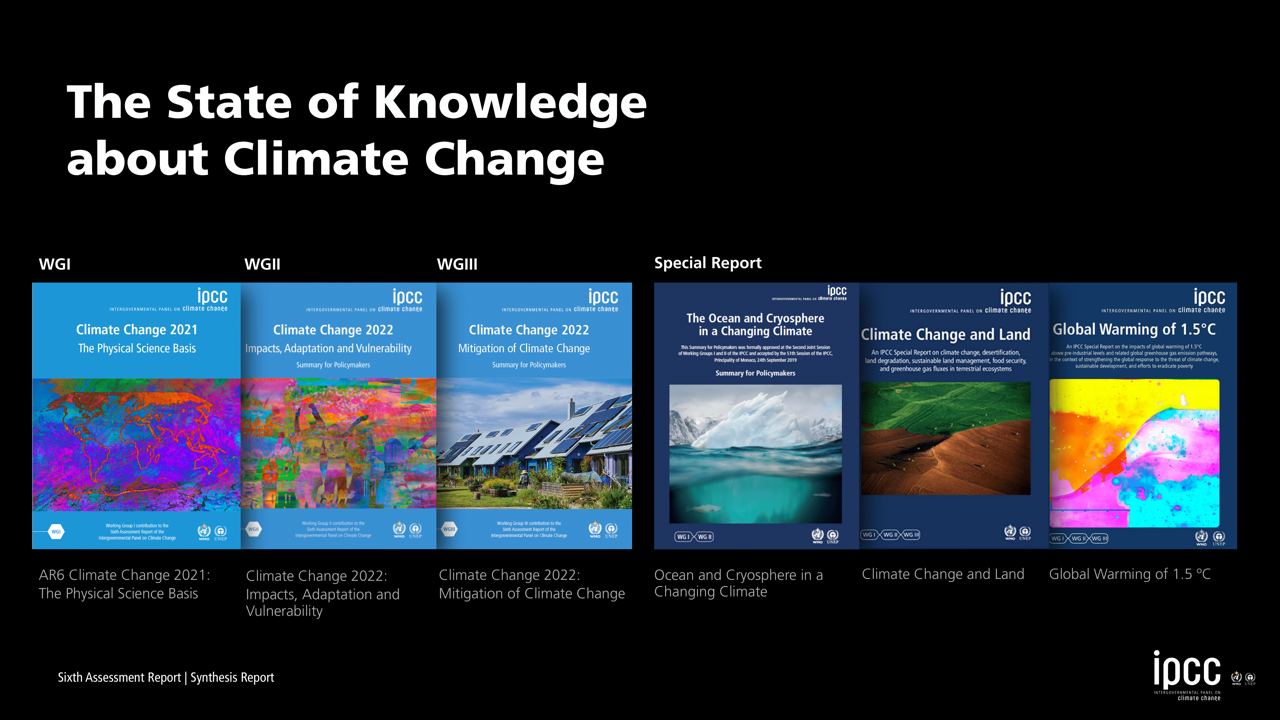
March 21, 2023 Tuesday

MANILA, 21 March 2023 – The Philippines lauded the timely approval of the Synthesis Report (SYR), the fourth and final installment of the sixth assessment report (AR6) of the Intergovernmental Panel on Climate Change (IPCC).
The all-women Philippine Delegation (PhilDel) to the 58th Session of the Panel (IPCC-58) was led by Department of Environment and Natural Resources (DENR) Undersecretary Analiza Rebuelta-Teh and supported by Climate Change Commission PH (CCC) Commissioner Rachel Anne S. Herrera and Dr. Faye Abigail T. Cruz, Head of the Regional Climate Systems Laboratory of the Manila Observatory and IPCC Contributing Author for the Working Group I of AR6.
“The Synthesis Report serves as the fundamental basis for evidence-informed decisions and actions and provides a clear and substantive analysis on climate science that would accelerate the pace of co-creating policies and designing and implementing programs for science-based action,” DENR Undersecretary Rebuelta-Teh, Head of PhilDel, said.
The report draws on the summary and findings of the six (6) reports released during the current cycle that commenced in 2015. It provides an integrated and up-to-date analysis on climate change, including an overview of the state of knowledge on the science of climate change based on the three Working Groups of the IPCC and three Special Reports on the impacts of 1.50C global warming, and on climate change impacts to oceans and cryosphere, and land.
During the week-long approval sessions, PhilDel intervened on several sections of the report by highlighting the urgent need in pursuing evidence-based adaptation planning especially in developing and most vulnerable countries, such as in combining green-blue with gray infrastructure to address the risk of flooding in cities, and strongly supporting the value of emissions avoidance as a recognition of risk-based and outcomes-based approaches to curb GHG emissions with the use of best available non-GHG emitting technologies.
“The solution lies in climate-resilient development. This involves integrating measures to adapt to climate change with actions to reduce or avoid greenhouse gas emissions in ways that provide wider benefits. Climate resilient development becomes progressively more challenging with every increment of warming. This is why the choices made in the next few years will play a critical role in deciding our future and that of generations to come,” the IPCC said in a statement.
The Philippines likewise acknowledged that loss and damage are expected to worsen with increasing global warming as adaptation limits are reached for some ecosystems, for which financing will be crucial.
“The Synthesis Report, along with the Summary for Policymakers (SPM) document, will provide the impetus for urgent climate action in the Philippine context. As knowledge gaps remain, these IPCC reports serve as critical reference points for our policymakers to heed the science on the gravity of climate change as a planetary health concern necessitating solutions in policy and programs at the global and domestic level,” Commissioner Herrera said.
The approval of the Synthesis Report took place following in-depth discussions among government representatives in IPCC-58, held 13 to 19 March 2023 in Interlaken, Switzerland.
Established in 1988, the IPCC assesses in a comprehensive, objective, and transparent manner the scientific, technical, and socio-economic information relevant to understanding human-induced climate change, its potential impacts, and adaptation and mitigation options. The IPCC is composed of thousands of climate scientists and experts from 195 member-countries.
Photo by: IPCC